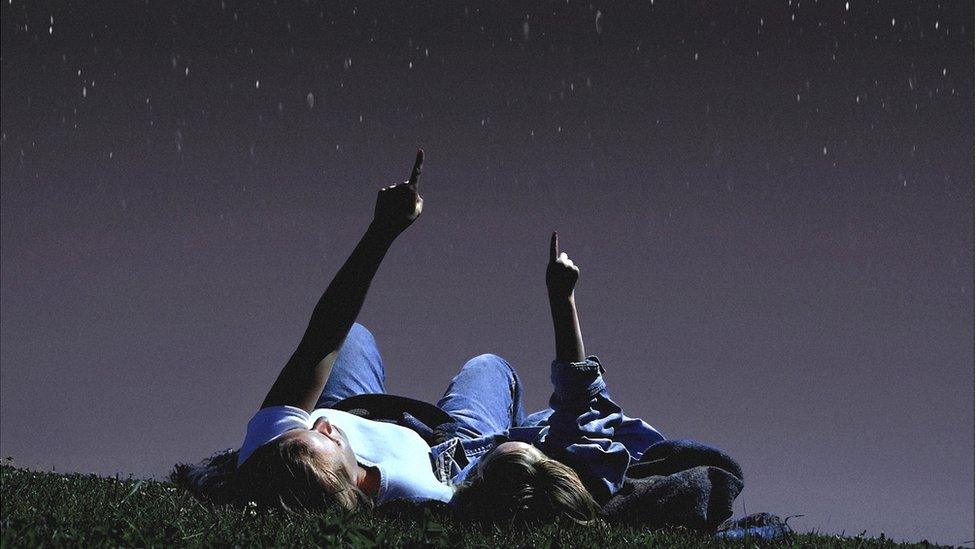Dark Skies: Welsh island recognised as great place for stargazing
- Published
- comments
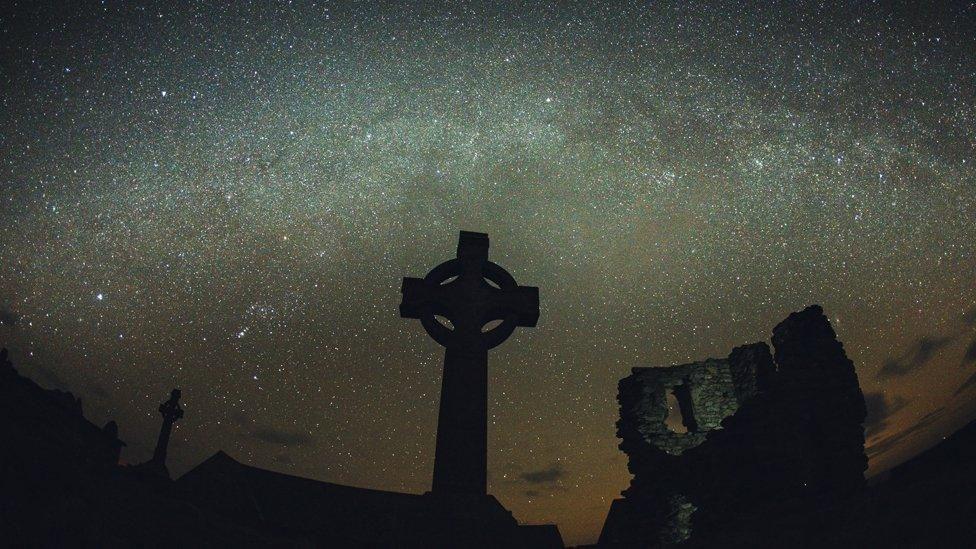
An island in North Wales has become the first dark sky sanctuary in Europe, meaning there is not much light pollution.
Having one of the best night skies in the world for spotting stars, Ynys Enlli (Bardsey Island) has now been given special status and awarded International Dark Sanctuary certification.
There are only 16 other sites in the world recognised as the most remote and dark places on Earth.
It's hoped that this new status will raise the island's profile and establish Wales as a "dark sky nation".
Ynys Enlli becomes dark night sanctuary
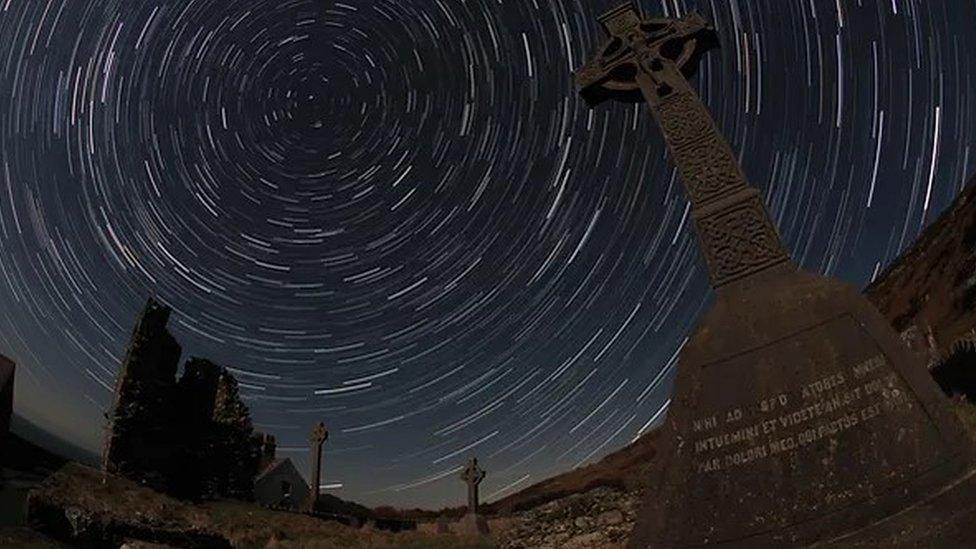
International Dark Sky Sanctuaries are usually in very remote locations, with few nearby threats to the quality of its dark night skies.
The location and geographical features of Ynys Enlli, located two miles of the tip off the Llŷn Peninsula, make it one of the darkest places in the UK.
The mountains protect it from artificially light coming from the mainland, making it a great location to see the stars at night.
The closest major light pollution comes from Dublin, which is more than 70 miles (112.6km) across the Irish Sea.
It took work to achieve this status, said Sian Stacey, chair of the island's trust.
She added: "There's no doubt that achieving this prestigious status for Ynys Enlli will raise the profile of the island as a unique place in Wales and amongst the best in the world to appreciate the night sky.
"We hope it will also go a long way in securing the long-term sustainability of the island."
It's home to a small community of people who work off the land and fish from the island.
There have been 310 species of birds recorded on the island.
It's known as the island of 20,000 saints, because of the Celtic and Christian monasteries built there.
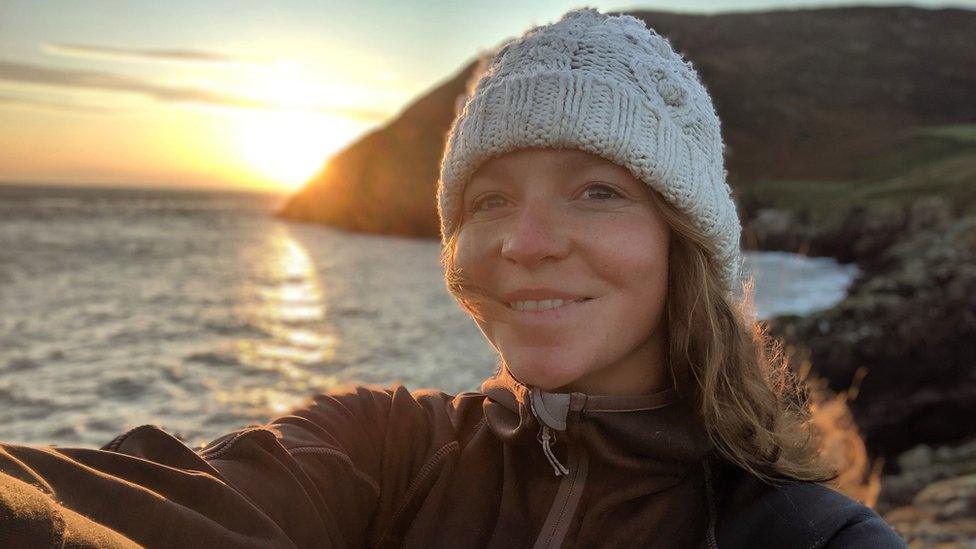
Mari Huws was part of the islands the certification process
It took four years, using the latest technology, to monitor the quality of the night sky on the island, to show that it is dark enough to qualify for the dark sky sanctuary status.
Mari Huws, is one of the islands wardens and helped with the certification process.
Living here I am always in awe of the island's beauty - and the night sky is very much a part of that.
"Having secured the certification, we look forward to welcoming visitors here over the coming months and years and sharing with them our unique story.
"In a world that's increasingly being polluted, it's a privilege to be able to work towards protecting something that is pristine for future generations," said Mari Huws.
Light pollution across the world is increasing.
A recent global study found that in the last 12 years, the brightness of the night sky has increased by 10% each year. This means a child born in an area where 250 stars were visible, would probably see fewer than 100 stars in the same area 18 years later.
- Published16 April 2019
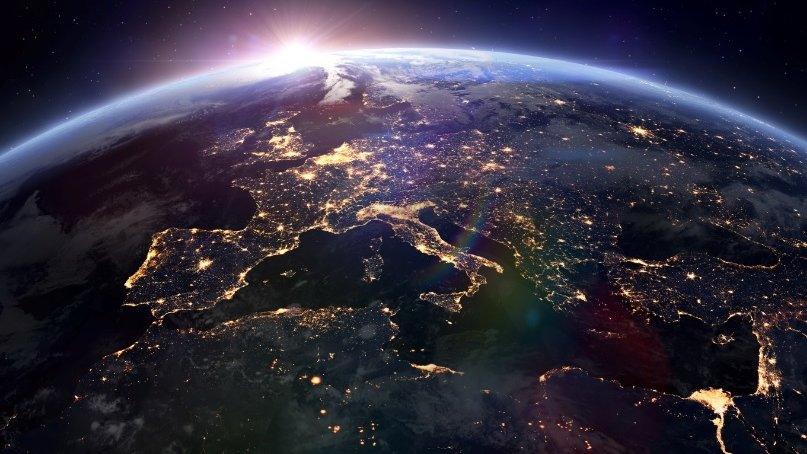
- Published20 January 2023
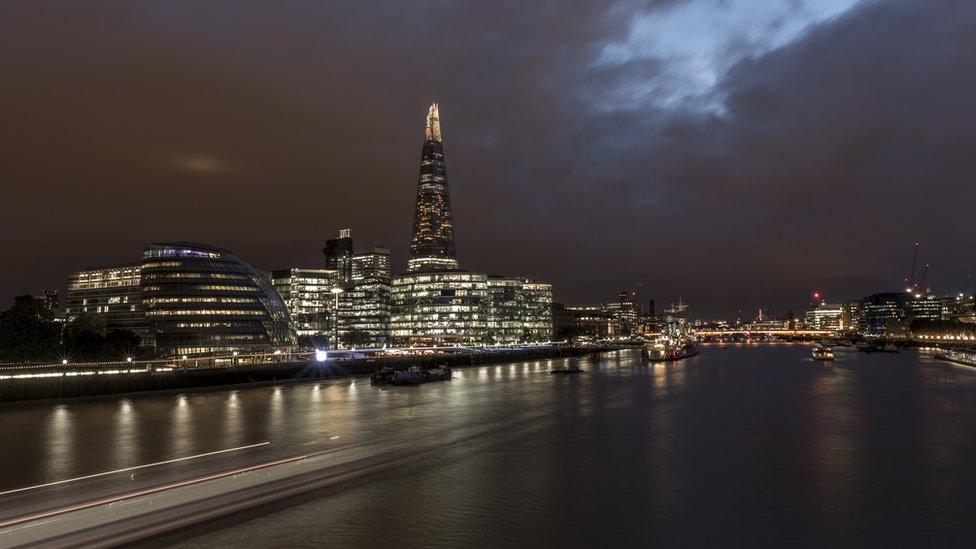
- Published1 March 2022
